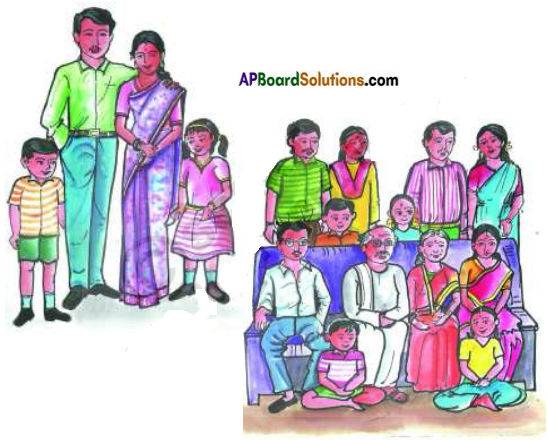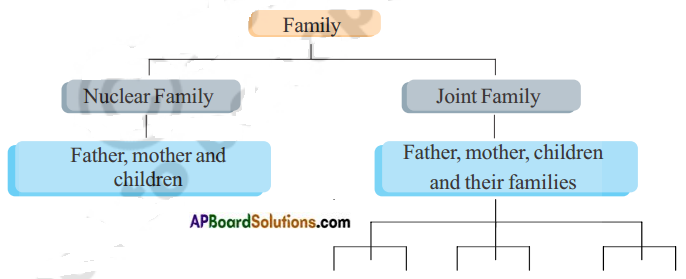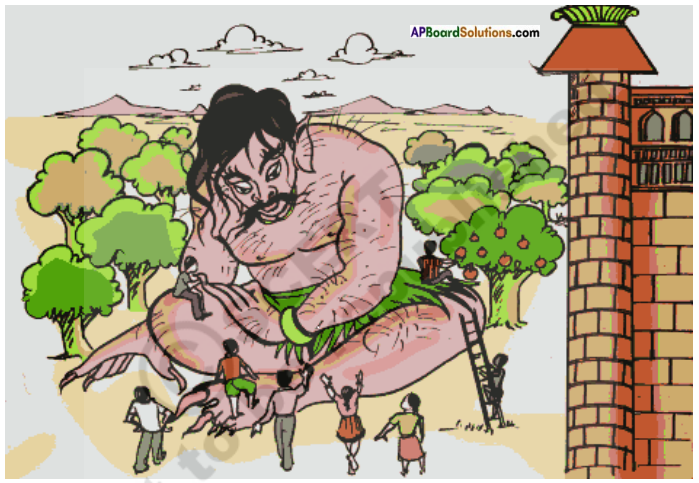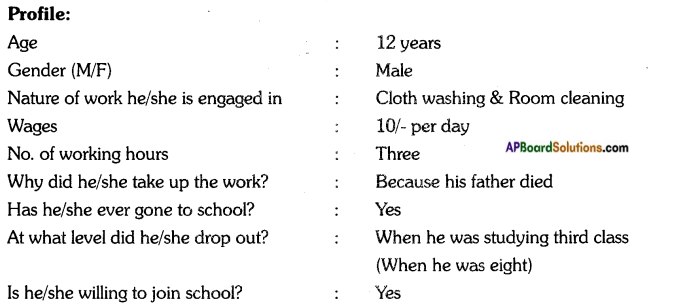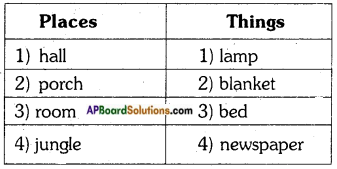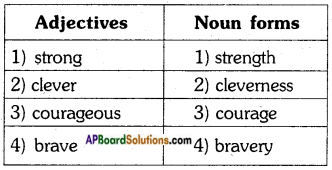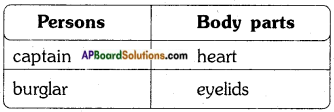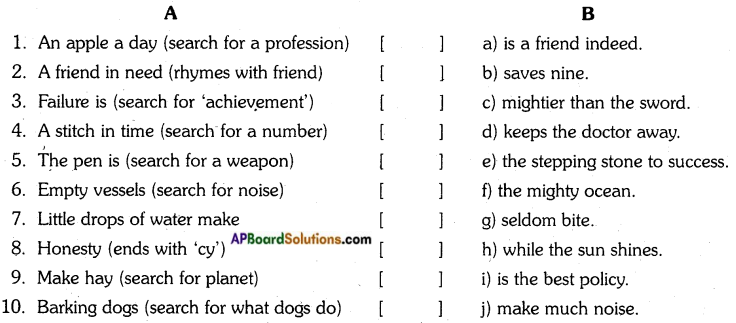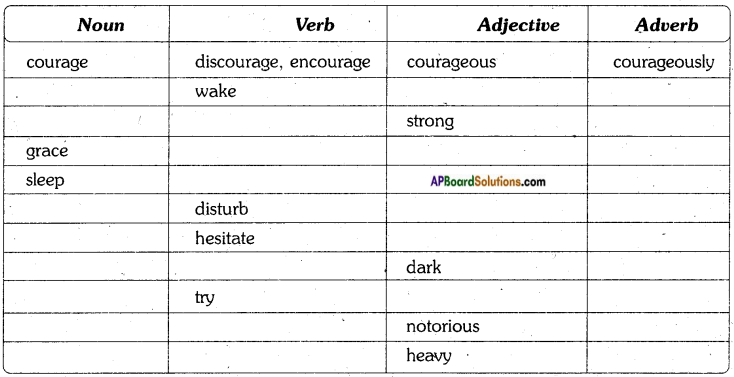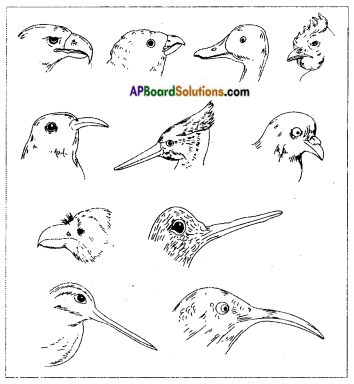AP State Syllabus AP Board 8th Class English Textbook Solutions Chapter 3C The Garden Within Textbook Questions and Answers.
AP State Syllabus 8th Class English Solutions Chapter 3C The Garden Within
8th Class English Chapter 3C The Garden Within Textbook Questions and Answers
Look at the pictures given and answer the questions that follow.
Comprehension
Question 1.
What is the central idea of the poem?
Answer:
There is a garden in the poet’s heart. She wants to tend it beautifully. She wants to be grateful to achieve her goal. She wants to be good to others. When one is good to others, one will get respect. When one is thankful, one will reach one’s goal.
Question 2.
What features of the garden in the poet’s heart are mentioned in stanza 1?
Answer:
The feature of the garden in the poet’s heart that is mentioned in stanza 1 is that beauty grows in fits and starts.
![]()
Question 3.
What is the mood of the poet? Put a tick (✓) mark,
a. sad b. hopeful c. thankful
Answer:
b) hopeful ( ✓)
Question 4.
Explain the word ‘gratitude’ as used in the poem.
Answer:
‘Gratitude’ means thankfulness. The poetess wants to be thankful to achieve her goal and it will comfort her soul.
Simile, Metaphor and Personification:
Observe the following sentences.
1. Here and there over the grass stood beautiful flowers like stars.
In this sentence “flowers are compared to stars” such a comparison using ‘like’ and ‘as’ is called ‘simile’.
e.g.: a. He roared like a lion.
b. Her face is as white as snow.
2. Life is a journey. Enjoy the ride.
In the above sentence the word ‘journey’ is used to describe/compare the word ‘life’. Such words are called ‘metaphor’. They are used to show that two things have same qualities. They make the description more powerful, e.g.: a. Rudramadevi was a lioness in battle, b. Her home was a prison.
3. Spring has forgotten his garden.
Here, though ‘spring’ is a season, it is represented as a human being and given the qualities of forgetting, etc. Such usage in literature is called ‘personification’, e.g.: a. The stars danced playfully in the moonlit sky.
b. The snow covered up the grass with her great white cloak.
![]()
Project work
Collect a few story books and fill in the table with details and present it before the class.
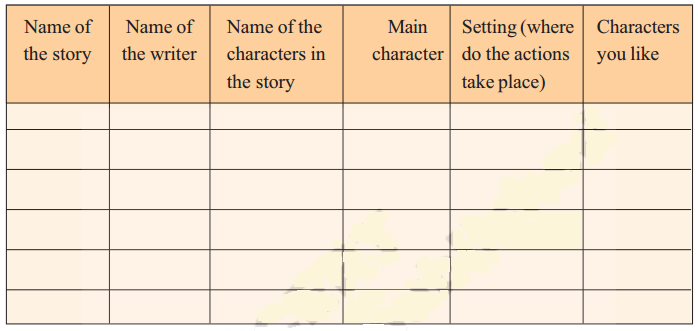
Answer:
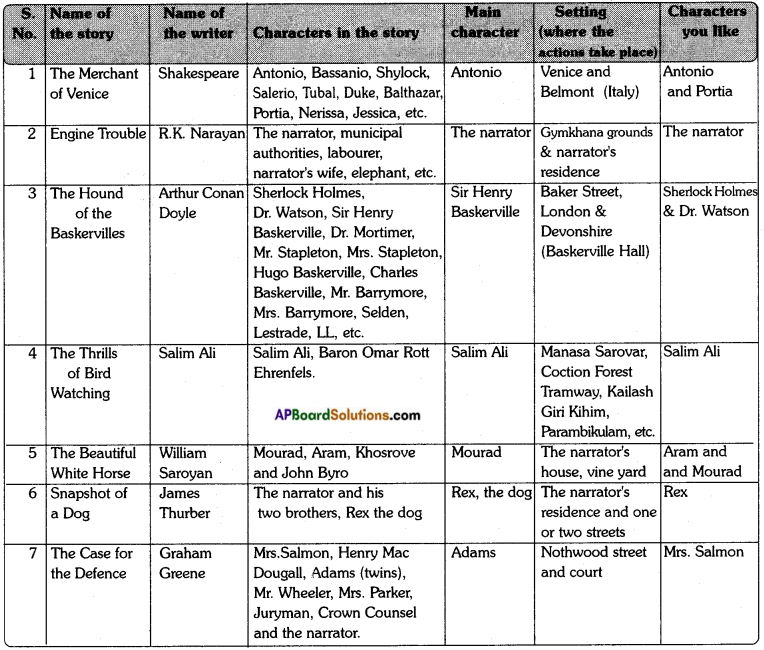
The Garden Within Summary in English
The poetess finds that there is a garden in her heart. Like the gardener who lovingly tends his garden for the pleasures of bloom, the poetess nourishes the memories because they comfort her soul. In the garden of her heart beauty doesn’t grow continuously. She wants to give her smiles to others like the petals of the flowers in the garden of her heart. Then the others will respond in the same way and respect her feelings. There is a good hope in her and it results in good seeds to comfort her spirit. She wants to reach her goal with thankfulness and it will touch her soul. Here the soul of the poetess is compared with beautiful garden.
The Garden Within Glossary
petal (n): a delicate coloured part of a flower
bestowed (v): gave, showed respect
bowers (n): a pleasant place in the shade of tree
![]()
nutritious (adj): good
reaps (v): gives
spirit (n): inner feeling or mood
gratitude (n): thankfulness
goal (n): something that you hope to achieve
in fits and starts (phr): in a sudden and irregular manner
